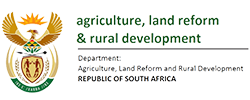The benefits of the seed breeding and technology statutory levy on wheat, barley and oats
The statutory levy on wheat, barley and oats of R32 per ton (VAT excluded) to fund seed breeding and technology, that is administered by the SA Cultivar and Technology Agency (SACTA), will lapse on 30 September 2023.
On 10 February 2023, the National Agricultural Marketing Council (NAMC) received a request from SACTA, that the Minister of Agriculture, Land Reform and Rural Development, approve the continuation and increase of the levy on the winter cereals mentioned above.
According to the financial statements of SACTA, a total levy income amount of R61.7 million was received on wheat in the 2021/22 financial year, R10.9 million on barley and R1.2 million on oats during the same period.
The SACTA seed breeding & technology system compensates breeding companies on performance, measured by audited seed sales numbers, after the marketing year of that crop. These levies aim to motivate and promote cultivar development, and to speed up development of cultivars that perform well agronomically and have appropriate value-adding, processing, milling and baking characteristics. The overall goal of the breeding statutory levies is better seed, for a bigger winter cereal production and eventually to promote food security.
The results from the collection and distribution of the breeding and technology statutory levy initially introduced in 2016, can be summarised as follows:
- With respect to wheat, ten new cultivars have been commercialised in the past three years, and two additional international seed companies have registered cultivars in the “South African Varietal List as maintained by the Registrar of Plant Improvement.” In November 2022, ten new wheat cultivars were approved for commercialization – five for the southern production areas, one for northern dryland areas and four for the irrigation regions. The five new varieties for the southern production region are from a seed company that has not previously sold seed in this region, so farmers are now being offered a greater choice of genetics.
- Wheat production in South Africa has expanded from 1,535 million tons in 2019/20 to 2,285 million tons in 2021/22.
- Although the barley and oats industries are relatively small, some new varieties have also been listed.
One of the conditions of approval of the winter cereal seed breeding and technology statutory levy, is that at least 20% of levy income, bust be used for transformation purposes. As part of SACTA’s transformation activities, they developed a financing scheme to assist individual farmers. The funds made available to farmers serves as collateral and is used to provide input cost financing loans to semi-commercial black farmers in the grains and oilseeds industries on an interest free basis. The input costs of the farmers are reimbursed from these accounts and all input costs of the qualifying farmers are taken into consideration in the determination of the actual loan amounts, which include wages, fuel and even mechanisation where appropriate. In summary, the SACTA input finance scheme consists of the following main elements:
- The loan is made available for an initial three-year period
- It is an interest free loan
- The loan is repayable
- Increases in production cost during the period are accommodated.
In the 2021/22 financial year, SACTA’s support for transformation activities in the winter cereals industries under the Enterprise Development pillar has enabled 65 farmers (43 wheat, 19 barley & 5 oats) to plant 2,197 ha (1,519 ha wheat, 343 ha barley & 335 ha oats). All the farmers have accessed commercial grain markets by selling their grain production into these markets.

